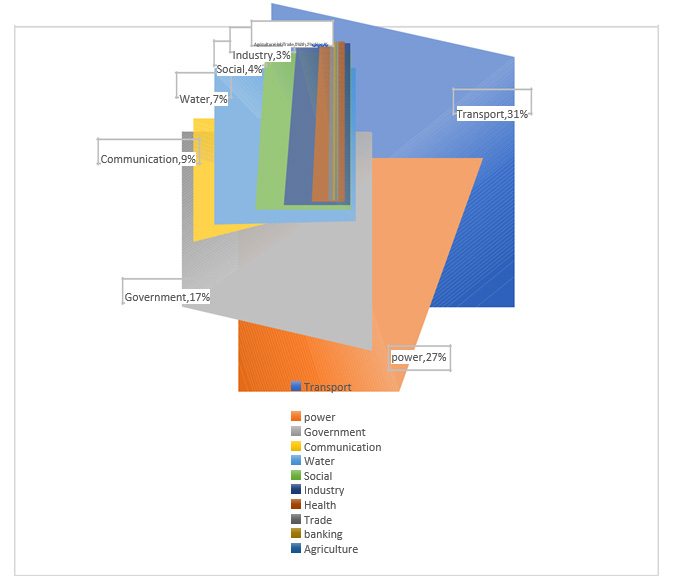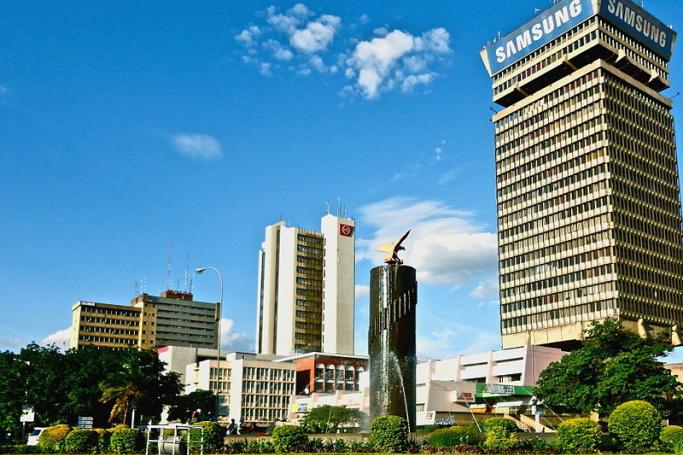As part of Mizzima’s news and analysis, we are looking into the power-politics of Myanmar’s neighbours
Resistance is growing to China’s presence in the African country of Zambia as people are getting suspicious about the economic coercion tactics being used by Beijing, which may lead to the African country becoming the first Chinese colony.
The heightened concerns come as Beijing continues to try to expand its infrastructure and influence under the Belt and Road Initiative (BRI), a worldwide venture that includes Myanmar as a crucial component.
The fear of Chinese invasion has appeared to be becoming true due to the high possibility of Chinese taking over Zambia’s airport, electricity company, national broadcasting network and major road projects owing to failure to repay loans worth US$8.7 billion. The risk is not limited to economic factors. Beijing has allegedly obtained unrestrained control over the resources, and allegedly carried out rampant infiltration of Chinese nationals in Zambia and tried to recruit citizens in the security forces of Zambia.
No country in today’s modern world has made such a subversive attempt to encroach upon the sovereignty of other nation.
The biggest takeaway of the China’s debt-trap diplomacy in Zambia is taking full control of information and broadcasting in order to drive its propaganda. Under the pretext to digitise the broadcast infrastructure, a joint venture was created in 2017, named TopStar Communications Limited, in which Chinese firm Start Times owns a majority 60 percent while the ZNBC, a Zambian state broadcaster, owns just 40 percent.
Power utility Zambia Electricity Supply Corporation (ZESCO) is set to fall into the hands of the Chinese thanks to Zambia’s default on the loan repayment. African Confidential, a London based political newsletter that is known for its impartial, accurate and investigative reports, has revealed that the ZNBC was already being run by the Chinese and disclosed that ZESCO was also almost taken over by a Chinese company. “The long-term outcome could be effective Chinese ownership of the commanding heights of the economy and potentially the biggest loss of national sovereignty since independence,” reads an excerpt from the African Confidential article.
The International Monetary Fund (IMF) had already warned that Chinese aid could lead to a problematic increase in debt, potentially limiting other spending as the debt service rises. The Brookings Institution has estimated that loans from China accounted for 65.8 percent of Zambia’s external debt. It raises concerns about national sovereignty and Chinese ownership of key components of Zambia’s infrastructure. There have been concrete reports about China planning to take over the Kenneth Kaunda International Airport should the Zambia Government fail to pay back its debt in time.
The economic aid by Beijing led to an increase in the number of Chinese businessmen and workers immigrating to Zambia in the past few years. The frequent instances of exploitation and discrimination against Zambians by Chinese personnel have led to a countrywide uproar. The interference of the Chinese in the internal security matters of Zambia has scared people. Two years ago, eight Chinese nationals were sworn in as police officials, who shockingly arrested Zambians in Zambia. Also, Zambian security agencies found Chinese secretly giving military training to some Zambians using weapons that were imported from China. All this is giving the impression that Zambia is becoming the property of China.
Graph: Sharp rise in Chinese loans to Zambia post BRI launch

Source: China Africa Research Initiative at Johns Hopkins University’s
Graph: Proportion of Chinese loans to Zambia (sector wise)

Zambia is one of the poor countries that are on the verge of falling into the debt-trap designed by China under their BRI plan. The overall government debt was 59 percent of Zambia’s gross domestic product in 2018, which increased from 21 percent in 2011. According to government statistics, Zambia owed 28 percent of its sovereign debt to China. Some believe the figure must be higher than that since the terms of Chinese loans are not transparent and many details are unreported.
Former Minister of Information and Broadcasting of Zambia Chishimba Kambwili expressed concerns over increasing Chinese funding saying he was "very critical about the government's borrowing, especially from China. Chinese loans often don't even go to Zambian accounts. They choose the contractor from China, the contractor is paid in China, but it reflects in our books as a loan from China.”
Moreover, people are angry over the poor quality of infrastructure built by Chinese companies under the BRI. A huge part of the Lusaka-Chirundu road, which was built by China Henan in 2011, was swept away in the first rains. Similarly, citizens of Zambia vented their anger after two stadiums that were built by China in the capital Lusaka and in Ndola were not just useless but expensive also.
Calling these projects a “white elephant”, people protested on the streets against Chinese companies and initiated a campaign slogan “Say No To China”. James Lukuku, leader of Zambia’s Republican Progressive Party, said “People have started realizing that China must be stopped.”












